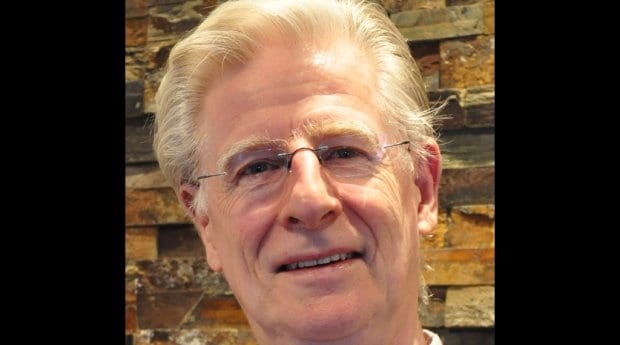Capital Pride is inviting former grand marshals to march in this year’s 30th anniversary Pride parade.
David Hoe, a former grand marshal, recently spoke to Daily Xtra about Pride memories, HIV advocacy and LGBT challenges ahead in this edited interview.
Daily Xtra: According to Capital Pride, you were grand marshal at the Pride parade in 1991. What are your memories of Pride that year?
Number one, that I was grand marshal with an incredible woman, Carmen Paquette. The other thing was that it was at the time when the AIDS epidemic was still so damaging and I think that’s probably why I was there because I was part of Ottawa’s fight against AIDS. It was the beginning of me getting sick [after being diagnosed with HIV] but it was such an important time. It wasn’t just necessarily that one Pride parade, but that whole period when AIDS was with us in a devastating way that there was a great sense of the community engaged in a fight.
What made you decide to fight for your own health and for the rights of others?
My story’s a bit peculiar. I got engaged in AIDS because I got hired as the executive director of the AIDS Committee of Ottawa in 1987. The fight became my work and my passion. There was only one thing to do, which was to fight and to get a response from the government, the health departments and research to address this issue.
What did receiving a Queen Elizabeth II Diamond Jubilee medal for your HIV/AIDS advocacy mean to you?
That I’d been picked out of many. In all honesty it felt as though a very small group of individuals had decided that it was worth recognizing the effort that I’d made, and of course the effort that I’d made was thanks to all the people who had inspired me. So, in that sense, it’s a collective recognition.
How do you feel about the current state of human rights for people in Canada living with HIV/AIDS?
There’s a conversation happening that’s a big one and that is about a national pharmaceutical plan. One of the things that has to change is greater access to medications. HIV now touches many, many other issues. The fight used to be for social justice and against stigma. Stigma is still there and it’s one of the barriers to people getting tested, getting health care and maintaining themselves on medication.
There’s a concern that the face of Pride has become white and cisgender with a focus on partying rather than political action. How do you feel about these concerns?
The first Pride that I [marched] in was in the early 1970s in New York City. The Pride parade was on and I couldn’t just stand on the sidewalk. The energy of the early Pride parades was about being visible and being strong. Its major ethos was a social and political one.
Capital Pride has struggled a lot with financial credibility and I know it’s become — as all Pride parades have — commercially supported. But I still think that the presence of strength, power and joy is still a powerful lesson for society, that we are not people who are any of the labels that are used to describe us. I think that the sexual energy of a Pride is still one of the things that is powerful for society to see and for creating a space for all of those people who are recognizing their own sexual orientation.
As we celebrate 30 years of Pride in Ottawa, what are the challenges ahead for LGBT rights?
I think we’re still in the middle of the exploration of sexual diversity and the whole diaspora of what sexuality and gender identity is about. I think it’s about holding ground as well as welcoming in. I still think it is absolutely vital that we are public in an explicit way, that we articulate the way ahead that we see. I think that sexual rights and also diversity of gender is still stuff that we need to work on.
I think it’s worthy of note that so much happens around Pride in terms of community building and petitions. I was talking with someone about what we might organize around changing the access to drugs for anal cancer or HPV. There are other things that happen around Pride parades that are political and social. People connect with each other. There’s a sense of community. One of the most profound things that the Pride parade and the events surrounding it do is give a sense of belonging and I think that’s so vital to humankind.
Some community members, including people of colour, low-income people and trans people, have told Daily Xtra that they don’t feel welcomed or included by Pride.
That saddens my heart. This is a classic example that there’s work left to do. I am aware that Pride parades in Ottawa are very white. It’s not true in New York, Chicago or Toronto. It’s a very good [issue] for Pride organizers to consider.
Will you march in Ottawa this year?
No, I’m going to be in BC, unfortunately. Somehow my schedule is taking me away from Toronto Pride, Vancouver Pride and Ottawa Pride, so I’m Pride-less this year.


 Why you can trust Xtra
Why you can trust Xtra


